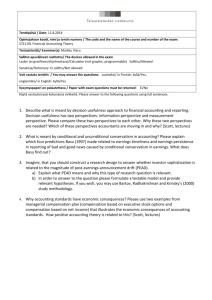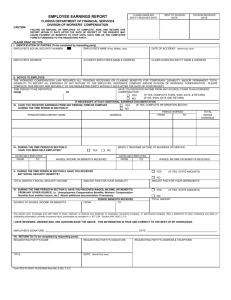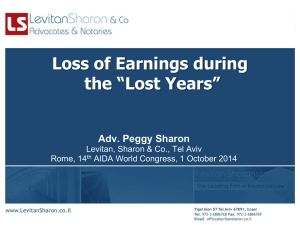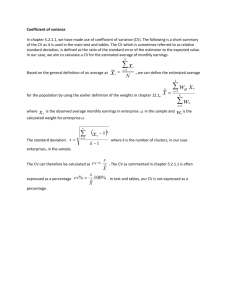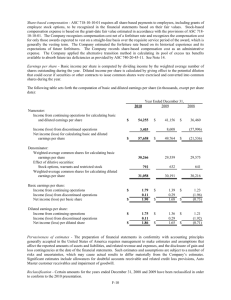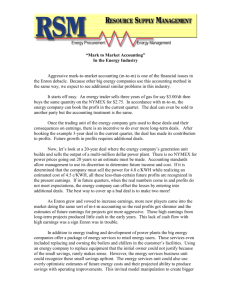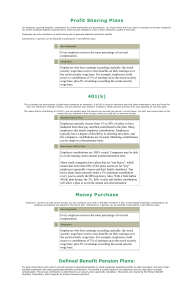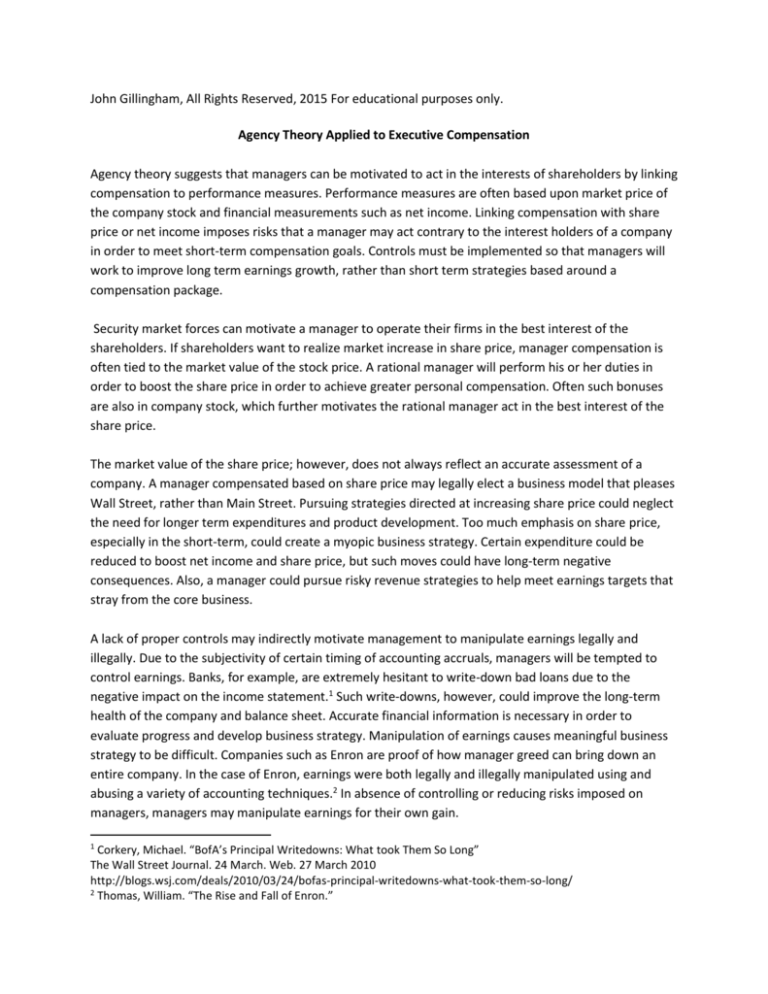
John Gillingham, All Rights Reserved, 2015 For educational purposes only.
Agency Theory Applied to Executive Compensation
Agency theory suggests that managers can be motivated to act in the interests of shareholders by linking
compensation to performance measures. Performance measures are often based upon market price of
the company stock and financial measurements such as net income. Linking compensation with share
price or net income imposes risks that a manager may act contrary to the interest holders of a company
in order to meet short-term compensation goals. Controls must be implemented so that managers will
work to improve long term earnings growth, rather than short term strategies based around a
compensation package.
Security market forces can motivate a manager to operate their firms in the best interest of the
shareholders. If shareholders want to realize market increase in share price, manager compensation is
often tied to the market value of the stock price. A rational manager will perform his or her duties in
order to boost the share price in order to achieve greater personal compensation. Often such bonuses
are also in company stock, which further motivates the rational manager act in the best interest of the
share price.
The market value of the share price; however, does not always reflect an accurate assessment of a
company. A manager compensated based on share price may legally elect a business model that pleases
Wall Street, rather than Main Street. Pursuing strategies directed at increasing share price could neglect
the need for longer term expenditures and product development. Too much emphasis on share price,
especially in the short-term, could create a myopic business strategy. Certain expenditure could be
reduced to boost net income and share price, but such moves could have long-term negative
consequences. Also, a manager could pursue risky revenue strategies to help meet earnings targets that
stray from the core business.
A lack of proper controls may indirectly motivate management to manipulate earnings legally and
illegally. Due to the subjectivity of certain timing of accounting accruals, managers will be tempted to
control earnings. Banks, for example, are extremely hesitant to write-down bad loans due to the
negative impact on the income statement.1 Such write-downs, however, could improve the long-term
health of the company and balance sheet. Accurate financial information is necessary in order to
evaluate progress and develop business strategy. Manipulation of earnings causes meaningful business
strategy to be difficult. Companies such as Enron are proof of how manager greed can bring down an
entire company. In the case of Enron, earnings were both legally and illegally manipulated using and
abusing a variety of accounting techniques.2 In absence of controlling or reducing risks imposed on
managers, managers may manipulate earnings for their own gain.
1
Corkery, Michael. “BofA’s Principal Writedowns: What took Them So Long”
The Wall Street Journal. 24 March. Web. 27 March 2010
http://blogs.wsj.com/deals/2010/03/24/bofas-principal-writedowns-what-took-them-so-long/
2
Thomas, William. “The Rise and Fall of Enron.”
It is important to control risks imposed on management for the long term health of the company. Any
metric designed to compensate a manager based on share price alone may be rewarding a manager
simply because the overall economy is strong. All boats rise on the high tide, but only when the tide
recedes can you tell who still has their shorts (Warren Buffet).3 Managers must be controlled and
measured with a variety of metrics so that they do not lose track of long term profitability.
Journal of Accountancy. April 2002. Web. 27 April 2010.
http://www.journalofaccountancy.com/Issues/2002/Apr/TheRiseAndFallOfEnron.htm
3
Maidment, Paul. “Naked Swimming and Macroprudence.”
Forbes. August 22, 2008. Web. 27 April 2010.
http://www.forbes.com/2008/08/22/buffett-bernanke-words-face-cx_pm_0822autofacescan02.html

